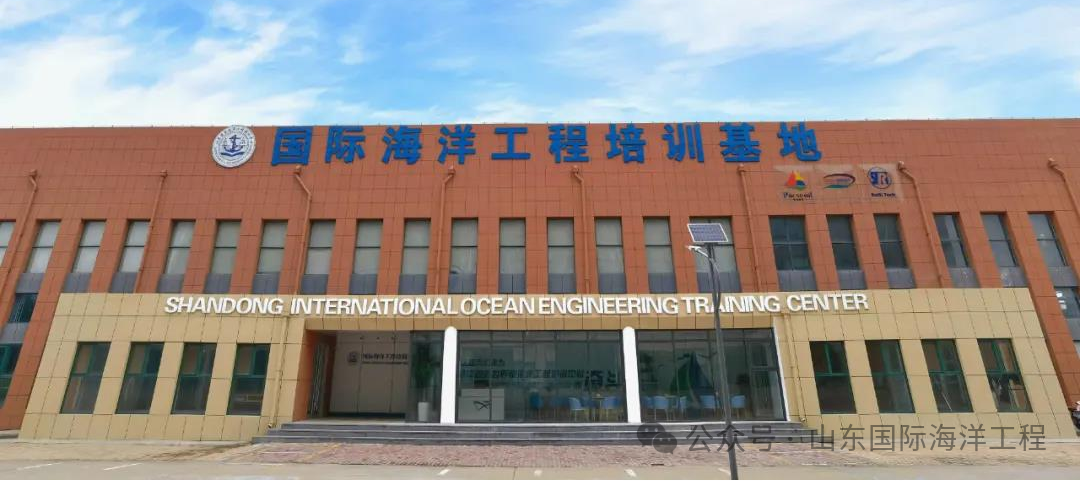-
0536-7038027
点击蓝字 关注我们

The International Maritime Rescue Federation (IMRF) is a charitable and public welfare non-governmental international organization with the aim of preventing global loss of life on water. As a member, Shandong International Marine Engineering Training Center actively participates in various international public welfare activities.
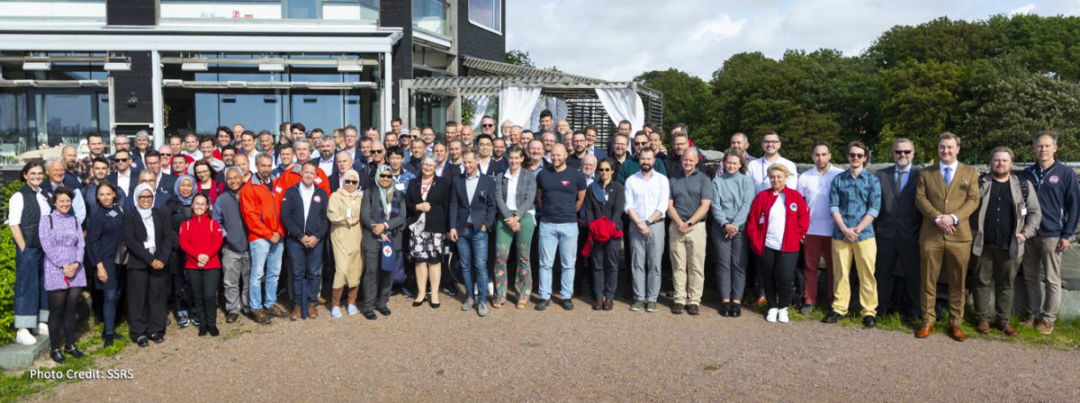
The Alliance was established in 1924 and has attracted professional associations and institutions of relevant maritime rescue government departments from multiple countries around the world for 100 years. It is a widely representative and professional authoritative organization with official influence in the international maritime rescue community. By the end of 2021, the alliance's members and affiliated units have reached 53 countries/regions with 121 members. International member units include the United States Coast Guard, New Zealand Coast Guard, Wellington Volunteer Coast Guard, Bulgarian National Maritime Search and Rescue Association (BULSAR), German Maritime Search and Rescue Team, Irish Coast Guard, Dutch Coast Guard......
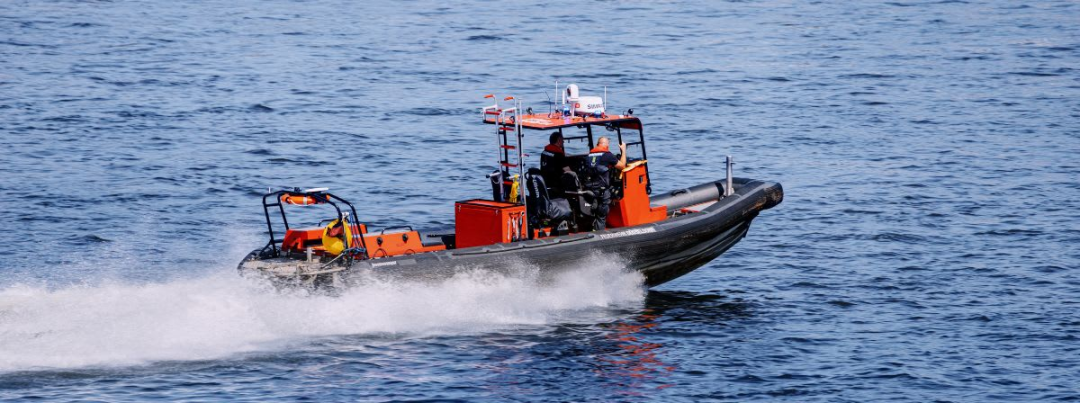
As a non-governmental organization with a charitable nature, IMRF self raises funds to carry out various activities and projects on a global scale, and cooperates with international intergovernmental organizations such as the International Maritime Organization (IMO) and the International Civil Aviation Organization (ICAO) to jointly explore methods and approaches to promote water safety and develop rescue services.
The # FutureSAR initiative of IMRF has identified the key challenges that the global maritime search and rescue (SAR) industry will face due to climate change, and has proposed guidance and best practices that will contribute to future rescue operations. This initiative is the world's first comprehensive response from the SAR industry to address the impact of climate change on the maritime search and rescue sector, as coastal communities, maritime activities, and the infrastructure they rely on are facing increasing risks.
FutureSAR focuses on how to address challenges related to climate change, including new rescue scenarios such as wind surges, implementing new technologies such as alternative fuels, and protecting infrastructure such as lifeboat facilities. The initiative also considers how the global maritime search and rescue community can contribute to carbon reduction and zero net emissions efforts in the broader shipping industry.
01
FUTURESAR report
The IMRF # FutureSAR report is the final report of the first phase of the # FutureSAR initiative, which can be downloaded below. This report explores the adjustments required for SAR services to address climate change, as well as the measures that these services can take to mitigate climate change. However, the focus of the report is on adaptation. Although the report mainly focuses on maritime SAR in the ocean and marine areas, it also covers SAR operations conducted in inland lakes.
This report is divided into impacts on different departments of SAR organization, including management, ship design and construction, equipment, operators and training, operations, stations and units. This segmentation aims to help readers examine the impact on them. The report includes 85 possible impacts of climate change on global SAR services. Each impact is presented in the report and further refined into more detailed impact mechanisms.
The report also includes 303 verification items related to the impact of identification. The importance of each action depends on the typical situation of each organization and location. Some of them may affect all SAR organizations, while others only apply to some organizations. Therefore, organizations are encouraged to examine these impacts and related verification items to evaluate which impacts are relevant to them now or in the future.
The report is also accompanied by a summary highlighting some of the main impacts identified in the report. As a specific tool for SAR organizations, you can download an Excel file that lists all verification items for further use by the organization. Download report link: https://www.international-maritime-rescue.org/futuresar
The report took 6 months to complete from September 2023 until its release today, with the support of the IMRF # FutureSAR working group, which is composed of SAR experts from all continents except Antarctica. The organizations represented in the working group include the Canadian Coast Guard, the Royal Coast Guard of the United Kingdom, the South African National Maritime Rescue Association, New Zealand Search and Rescue, the Nigerian Maritime Authority, the Canadian Para Marine SAR, the Royal National Lifeboat Association of the United Kingdom, the Shandong International Marine Engineering Training Center SIOETC (China), the New Zealand Surfing Lifesaving Association, and the Swedish Maritime Rescue Association. IMRF thanks these organizations and working groups for their efforts in advancing this initiative. IMRF also thanks the Lloyd's Register Foundation for providing financial support for this project.
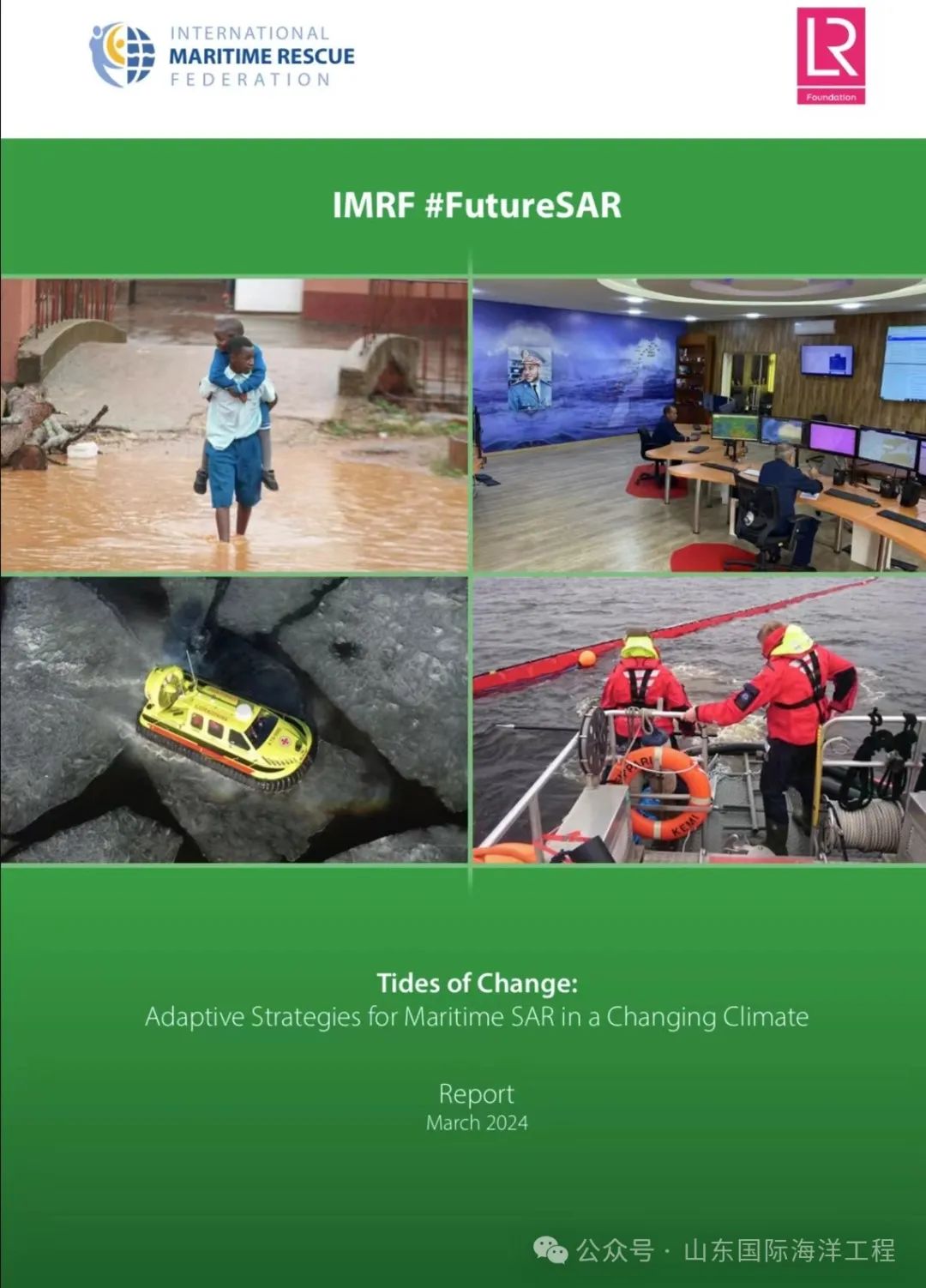
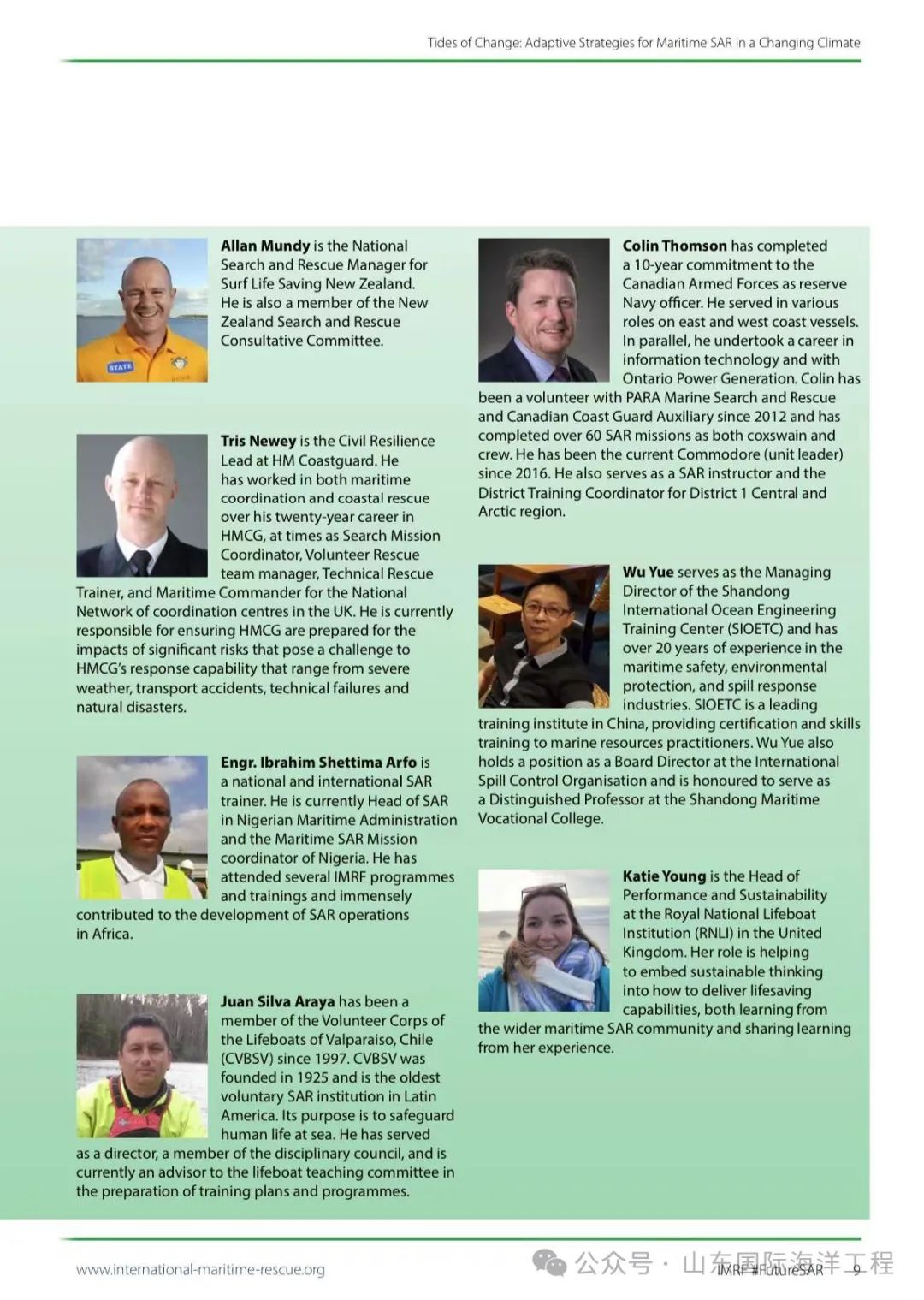
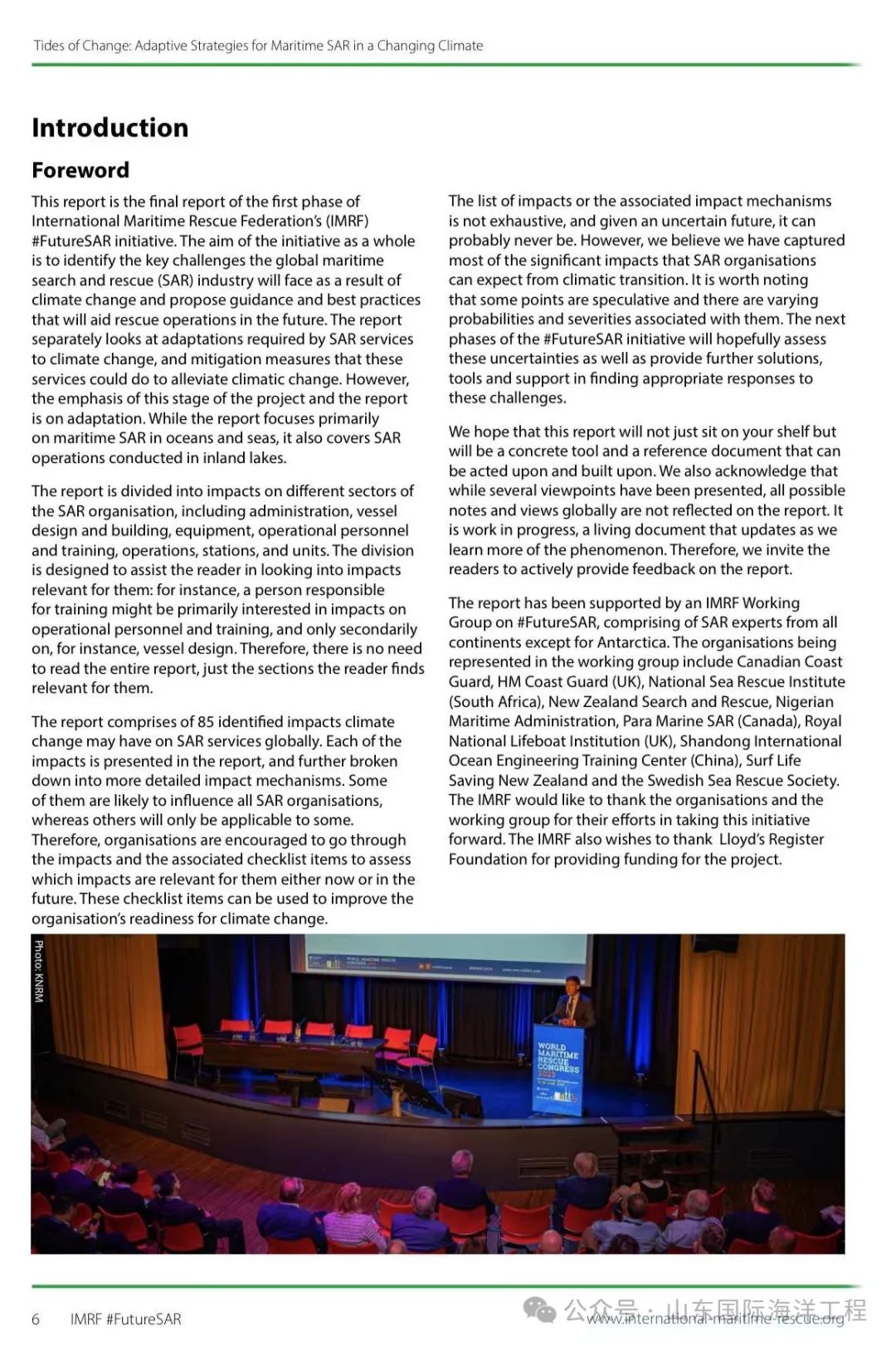
Click on the course link for more consultation International Ocean Engineering Training Center SIOETC was established in 2018 as a state-owned private mixed ownership enterprise of a joint-stock international standardization and safety training center. Located in Senda Meigang, Weifang. The Center is committed to accelerating the construction of a maritime power, serving China's basic national policy of the "the Belt and Road", and providing support for the "military civilian integration" to achieve national defense modernization. The Center has gained standard recognition and recognition from many international and domestic organizations by combining international advanced education experience, training courseware and management system. To cultivate training in China to meet the needs of global high-end maritime engineering industry clients, including offshore oil, wind power, minerals, and supporting engineering systems, military officers and soldiers, public security and fire protection, emergency rescue organizations, medical support departments, and other related maritime workers and management personnel in terms of certification and certification skills, as well as the promotion needs of marine resource practitioners, in order to improve personnel's safety, environmental protection, survival skills, accident survival rate, and rescue success rate at sea.